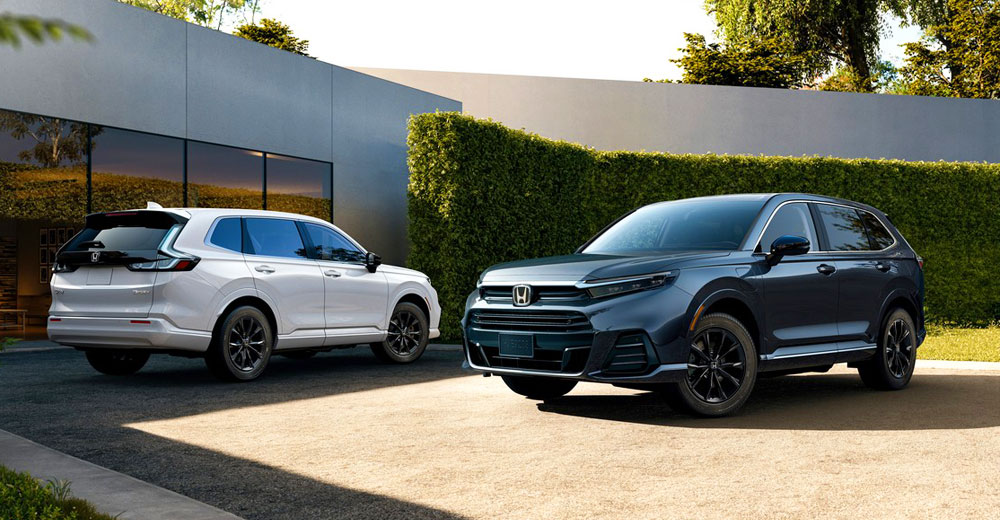
Honda Announces First Hydrogen Fuel Cell Consumer Vehicle for America
The first hydrogen fuel cell consumer vehicle for America was announced Tuesday by Honda. The CR-V e:FCEV combines a hydrogen fuel cell system with plug-in charging capability and has an EPA driving range rating of 270 miles.
Honda stated that the vehicles will be available for customer leasing in California starting later this year, with initial sales target of 2,000 units annually. Co-developed with General Motors, Honda’s new fuel cell system, made in Michigan, offers improved durability, higher efficiency, and lower cost compared to their previous-generation fuel cell system.
The CR-V e:FCEV, produced in Ohio, includes a 110-volt outlet that delivers 1,500 watts of power for various applications like small home appliances, power tools, and camping equipment.
Regarding infrastructure challenges, industry experts expressed concern about the limited fueling infrastructure for hydrogen vehicles compared to battery-electric vehicles. While the new CR-V e:FCEV shows promise, fueling infrastructure remains a major hurdle for the adoption of fuel cell vehicles.
The vehicle’s key specifications and features were also highlighted, showcasing the advanced technology and design elements incorporated by Honda. It is evident that while hydrogen-powered vehicles have potential, they have not gained significant traction in the market due to infrastructure challenges and the dominance of battery-electric vehicles.
Despite the launch of the CR-V e:FCEV, industry analysts project that hydrogen-powered vehicles may not become a mass-market item in the near future. The focus on heavy vehicles, especially long-haul trucks, might offer a more suitable application for fuel cell technology, but even in that segment, challenges remain.
Overall, while the CR-V e:FCEV represents a significant step forward in the adoption of hydrogen fuel cell technology, the road to mass-market acceptance remains uncertain. Industry experts suggest that the future of clean power options for vehicles may lean more towards battery-electric vehicles, with fuel cell technology facing hurdles in infrastructure and market adoption.


